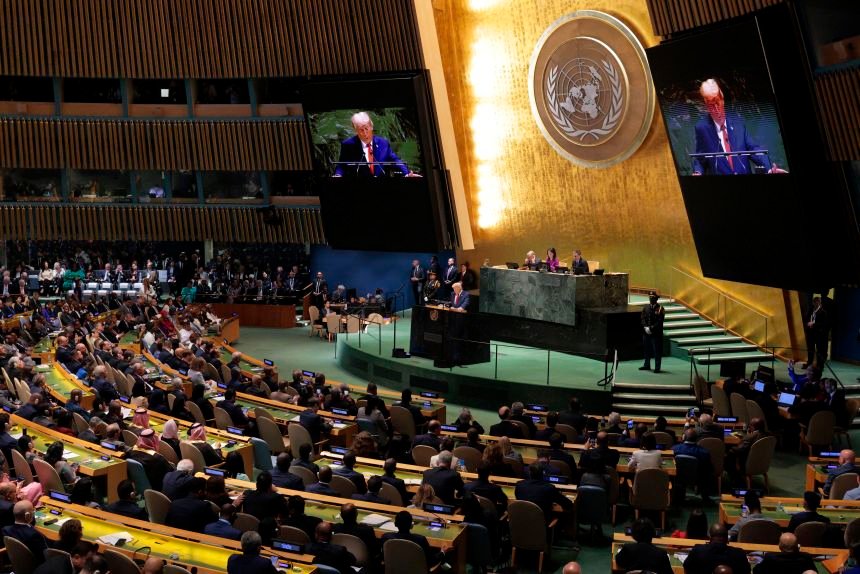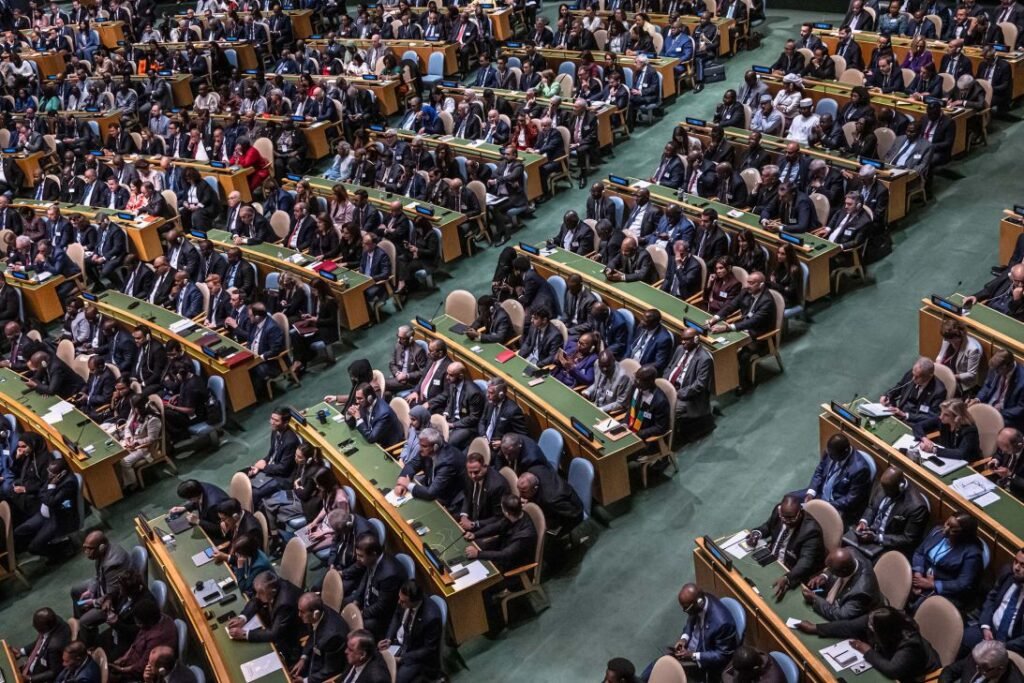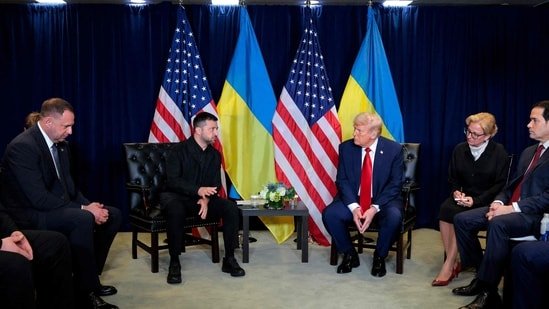Brett McGurk is a CNN global affairs analyst who served in senior national security positions under Presidents George W. Bush, Barack Obama, Donald Trump and Joe Biden.
As world leaders gather in New York this week for the UN General Assembly (UNGA), their focus will be on immediate crises, including Gaza and Ukraine, with both conflicts now poised to last through the rest of this year and into 2026.
I have participated in numerous UNGA meetings with presidents of both political parties. The issues tend to be dominated by the current headlines, but looking back, the story of those gatherings is often what wasn’t covered, rather than what was.
At UNGA in 2013, for example, nobody anticipated the following year would be dominated by the global scourge of ISIS. Ten years later, at UNGA in 2023, nobody anticipated that within weeks, Hamas would invade Israel and ignite the Middle East. Similarly, in 2019, nobody anticipated a global pandemic that would soon change our way of life.
This year seems no different, because if we peer ahead, today’s relentless pace of events in global affairs may be an appetizer for what’s coming.
Let’s first consider the immediate crises, which will take up much of the focus this week.
In Gaza, this year began with the promise of a three-phased ceasefire deal to secure the release of all hostages and to ultimately end the war. That deal broke down in March, after its first phase, and since then, we’ve seen talks deadlock together with a humanitarian crisis, the largest Israeli military operations of the war, and hostages still being held.
Today, there is no immediate end in sight, or agreement on what to do next.
In New York, several countries led by France and the UK will recognize a Palestinian state with borders and attributes of sovereignty to be determined at some distant point in the future. These countries will also call for Hamas to give up and disarm – something that would end the war for good – but they have no ability to deliver that outcome.

Unfortunately, these symbolic moves may worsen the situation. They will trigger counter moves by Israel in the West Bank and harden Hamas’s demands in line with their twisted world view that October 7 was worth the costs to Palestinian lives in Gaza – making a potential resolution to this terrible war even harder to achieve diplomatically.
In Ukraine, this year has seen zigzags from Washington with calls for a unilateral ceasefire replaced by calls for a comprehensive deal, military support for Ukraine stopped and then restarted, and sanctions against Russia threatened but never implemented. President Donald Trump’s high-level summits of August, with Russian President Vladimir Putin in Alaska and European allies in Washington, served to highlight Putin’s maximalist aims as he seeks to acquire land he’s been unable to seize on the battlefield and ensure that Ukraine cannot defend itself from future Russian invasions. Ukraine will never accept such terms, leaving diplomacy adrift.
Nothing said or done in New York this week will shift Putin’s calculus as Ukraine now looks ahead to a frigid winter and some of the largest Russian attacks of the entire war.
In the end, there is likely to be a lot of talk about Gaza and Ukraine in New York this week but expect no initiatives that might help wind-down or resolve either of these conflicts.
Now compare this week’s performative gathering of leaders in New York to a summit held three weeks ago in Beijing – ostensibly to commemorate the 80th anniversary of the end of World War II. The imagery was striking with Russia’s President Putin, China’s President Xi Jinping, and North Korea’s leader Kim-Jong Un, locked in embrace towards shared global aims, together with Iran’s President Masoud Pezeshkian.
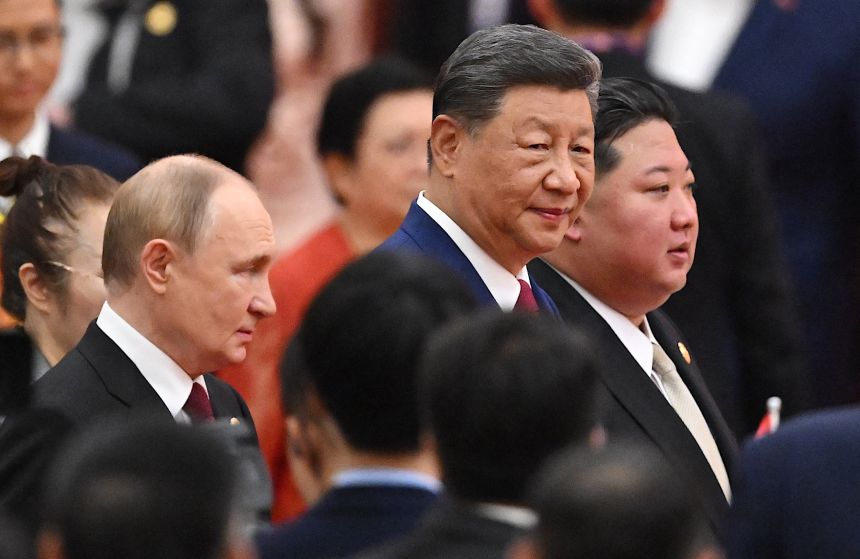
This alliance of countries, China-Russia-Iran-North Korea (CRINK), is not just symbolic. It’s actively shaping global realities in opposition to the United States, with Ukraine the current front line. North Korea has sent tens of thousands of soldiers to fight along-side Russian troops against Ukraine. Iran has provided drones and transferred technology for Russia to now mass produce Iranian drones inside Russia, leading to the swarm attacks launched into Ukraine over the last six months. China remains the largest purchaser of Russian energy products, helping to bankroll the war and sustain Russia’s economy.
Now consider that Xi has ordered China’s People’s Liberation Army (PLA) to be prepared for a possible invasion of Taiwan by 2027, an event that would be truly cataclysmic, with estimates of global economic shock of around $10 trillion and disruption of the supply of advanced semiconductors that sustain our daily livelihoods. Might we look back in a few years and wonder how nobody at the UNGA in 2025 was discussing this possibility?
As of today, most experts do not assess that Xi would order an invasion so soon, and he may never do so, preferring instead non-military gray zone operations, such as cyber-attacks, propaganda, military exercises, economic pressure and diplomatic isolation. The aim is to steadily erode Taipei’s confidence until it’s pressured into accepting full unification with the mainland without the need for a full-scale war.
But the odds of an invasion are as high as 35 percent, according to the risk assessment firm Global Guardian, and rise further as Beijing builds its military readiness.
With each passing month, Xi, like Putin towards Ukraine, will calculate opportunities and costs in pursuit of clearly stated aims towards Taiwan.
This is what links the Ukraine crisis to far broader global risks:
If the CRINK alliance is strengthening month-by-month and Putin faces decreasing costs for his war of aggression in Ukraine, the risks of Xi’s more aggressive approach towards Taiwan will increase, as will aggression from other members of CRINK, including Iran’s hegemonic ambitions in the Middle East and North Korea’s erratic behaviors on the Korean peninsula.
President Trump, when asked a question about the images from the Beijing summit, said, “They were hoping I was watching.” He later wrote on Truth Social, in a message directed to Xi, “give my warmest regards to Vladamir Putin, and Kim Jong Un, as you conspire against the United States of America.”
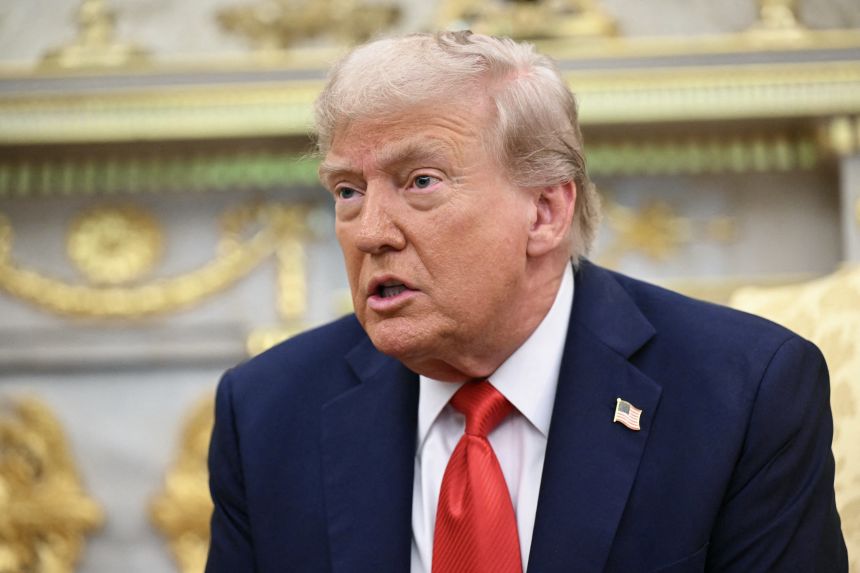
The president was right as to the intent and purpose of this gathering. These leaders sent a message to Washington. The question now is what message Washington sends back.
Framed this way, the second year of Trump’s second term is shaping to be a historic gateway towards a world of consolidation and stability, or a world of increasing disorder and conflict. If the risks and costs of aggression across borders decrease for Putin and the other CRINK leaders, then we can expect the latter. If the costs rise, and the network of alliances historically held together by the US strengthen – from NATO, to Japan, South Korea, Australia, New Zealand, and the Philippines – expect the former.
Add to the mix the ongoing race between the US and China in artificial intelligence, the closest we have come to an existential technological competition since the Cold War, and the table is set for 2026 to be perhaps one of the most pivotal years in a generation.
President Trump often speaks of the conflict in Ukraine as a burden he inherited, and a problem related solely to the fighting in eastern Ukraine. Some of his top advisers have dismissed Ukraine’s relevance to American interests, or a distraction from the need to deter a future conflict over Taiwan. This two-dimensional view misses the global implications of the Ukraine conflict as exemplified in the recent Beijing summit.

The CRINK capitals clearly see Ukraine as a war central to their future interests, and they are acting on that point of view. Similarly, American allies in the Pacific – particularly Japan and South Korea – have been vocal advocates for Ukraine, recognizing that a Russian failure there would help restrain and deter Xi’s ambitions in their region.
Therefore, a strategist looking at the coming year should think three-dimensionally, and work to consolidate support for Ukraine with increasing economic costs for Russia, while also aggressively pursuing a negotiated settlement that winds down the war. Similarly, in the Middle East, ending the war in Gaza and returning to an agenda of regional integration, remains central to peace in that region and globally, with Iran further constrained.
If both conflicts continue to fester, with no ends in sight, the seams of global order will tear further, with CRINK increasingly asserting advantage in multiple regions of the world.
That’s the scenario few will be discussing in New York this week, yet it may be the most central question for the future of global security and America’s position in the world.




